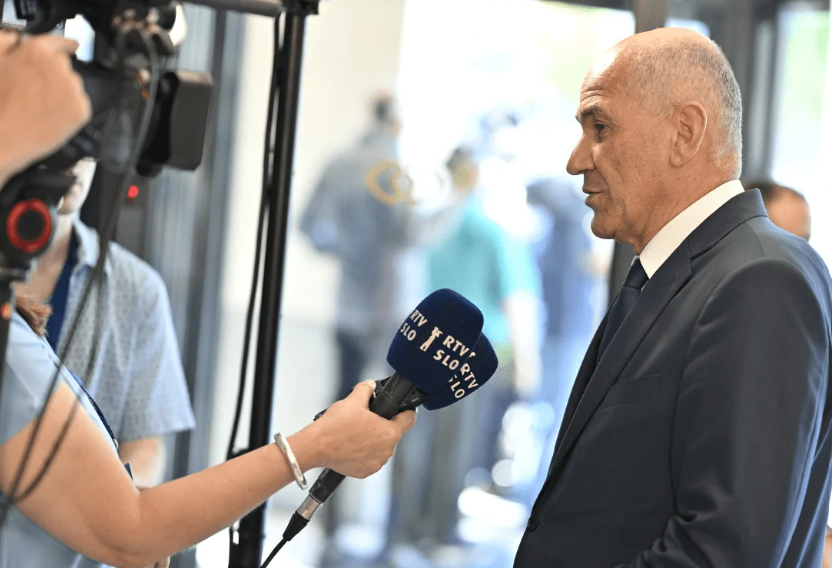“The debate has begun at the wrong end, because the positions are being discussed before the basic programme of the majority for the next five years has been agreed,” emphasised Janez Janša. The Slovenian Democratic Party (Slovenska demokratska stranka – SDS) also pointed this out at the European People’s Party (EPP) Summit, which is why the party also sent out a ten-point programme on Wednesday.
The SDS party President and leader of the opposition, Janez Janša, made a press statement ahead of the European People’s Party Summit, which will have a key impact on the future politics of the European Union.
First, the programme, then the division of positions
The SDS party argues that priorities should be discussed first, and only then the division of positions should happen. Janša added that, fortunately, the last informal summit was not a success, and he therefore hopes that the group will be able to agree on these ten points on how the SDS party envisions the future of Europe, and build a coalition from there.
As for the positions proposed by the SDS party, they support the EPP’s candidate for President of the European Parliament, Roberta Metsola, who, in Janša’s opinion, deserves another term, and he is particularly pleased with the liberals’ proposal for EU foreign affairs chief, Kaja Kallas, as we all know how she has performed in the last two crisis years. However, they have major concerns about the President of the European Commission (Ursula von der Leyen) and the President of the European Council (to be taken over by the socialist Antonio Costa) – the latter is particularly controversial.
The European Commission should not be a political body
Janša also stressed that the SDS party does not see a good future for the European Union if the same composition of the coalition as in the previous mandate is repeated. When asked by a journalist how Ursula von der Leyen could win their four votes, he said it would be a mistake to equate national parliaments with the European Parliament, where individual countries are represented – the EU is not a nation state, where it is about the opposition and the coalition. Some countries will remain in opposition in the event of a majority vote, and the European Union will fall apart. “The European Commission must not be a political body – the EU took a wrong turn when Jean-Claude Juncker said that the European Commission would be a political body, and the current President has continued this policy.” According to Janša, the Commission should be a technical body of the EU, not a political one, and it should work on the basis on which it was founded, namely on the Christian foundations of cooperation – that is, there should not be some countries in coalition and some in opposition.
Politics are being weighed in the European Parliament
Just how political the EU really is, is being weighed in the European Parliament – the SDS party is against repeating the same majority in Parliament. But they are there to build a new majority, based on a programme. The EPP Summit discussed ten points on the agenda, eight of which the SDS party fully agrees with; the priorities are security, a consistent policy against illegal migration (and the separation of legal from illegal migration), the fight for greater EU competitiveness (which no one is talking about), EU energy independence. But the debate about the green transition is also important, as there are still some ambiguities within this topic.
As for the SDS party leaving the EPP in the event of a Von der Leyen victory, Janša said that all options are open, but he does not think it is realistic that an anti-EU coalition would succeed in changing the balance. He also thinks that, given the points to be discussed at the Summit, there will absolutely be plenty of opportunity to form a different coalition.
I. K.


